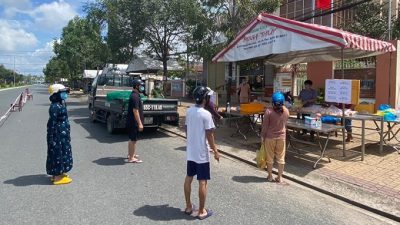
|
Globalisation is an inevitable trend in the world, bringing many opportunities for the country as well as creating favourable conditions for the strong development of organisations and businesses and for people to become “global citizens”. |
|
In addition, the rapid boom and development of information, technology and science have created many opportunities and challenges for the development of high-quality human resources according to international standards. Vietnam is in the middle of a huge digital transformation in its development. Therefore, care for and training of global citizens will be one of the values contributing to improving competitiveness and sustainable development. Accordingly, “Made in Vietnam” global citizen resources focus on sustainability based in brave and intellectual Vietnamese people and helping them to overcome various global challenges in this era of international integration. Vietnam has signed 13 free trade agreements (FTA), of which 12 are already in effect. Vietnam’s participation in FTAs has helped the country’s economy maintain its high growth of 6% – 7% per year; increasingly stabilising the macro-economy; and controlling the inflation. In addition to their advantages, the FTAs, especially new-generation, high-standard and comprehensive agreements (such as the CPTPP and EVFTA) have created challenges, especially in term of competitiveness. Vietnam has faced obstacles in its implementation of commitments in new sectors. Meanwhile, the employment field has undergone profound changes due to the impacts of climate change, population aging, epidemics and especially the complicated development of the COVID-19 pandemic. Therefore, the development of human resources is considered key to improving labour productivity and the competitiveness of Vietnam in particular and the region in general. In order to realise the goal of developing high quality human resources according to international standards, first of all, the responsibility belongs to universities, training institutions and human resources departments. According to educational experts, the three factors that make up a measure of a person’s ability are knowledge, skills and attitude. Vietnam is proud of the many talented people who have been honoured by the world. However, in general, the country is still in a situation of wasting manpower. Labour experts and trade unions said that in order to study and work in all countries around the world, Vietnamese employees should be good at foreign languages, knowledge, skills, health and working attitudes as well as study in the culture of their host countries. However, the foreign language skills of Vietnamese people are ranked low globally. In addition, practical skills of Vietnamese workers are still weak because training in the country has only focused on theory. Therefore, it is crucial to set out appropriate policies to guide social resources to overcome the challenges and difficulties in the development of global citizen-oriented human resources in the digital economy. The finances for human resources should be maintained; meanwhile, the socialisation and mobilisation of capital sources for human resource development should be enhanced. It is also essential to strongly innovate education and training towards the implementation of autonomous mechanisms for education and training institutions, while focusing on improving foreign language and living skills and the attitudes of global citizens. The relevant agencies and organisations, especially vocational schools, need to develop training programmes and methods in accordance with international standards. Education regarding and the regular update of international laws, of potential countries where many Vietnamese workers and employees are working is key. Physical education should also be strengthened to raise people’s health as well as boosting the linkages among training institutions and enterprises in training staff. Source: Nhan Dan Online
|

